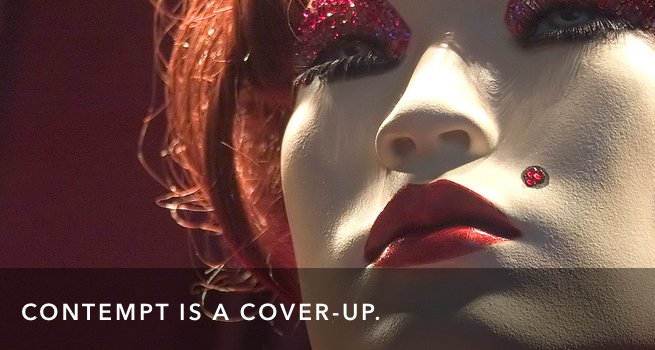6 min. to read.
Today’s post is a special contribution from a guest, Sharon Mavis. She and her husband Rick are fascinated by the connection between spiritual and emotional maturity, so her writing is right up the alley of what we talk about here. You can find more about Sharon below the post.
“I need to hide. There is something fundamentally wrong with me. I am a freak.”
Those ugly thoughts used to be triggered when I was around attractive, confident women wearing expensive clothes. If they were arrogant, the effect on me multiplied exponentially. The feeling was shame. I knew exactly where it originated.
Elementary school for me was in rural southern Indiana in the 1950s. My dad was a farmer who also worked a full time job, driving a truck for minimum wage. In the middle of my eighth grade, our family moved 500 miles to Michigan for my dad to work in an automobile factory. I transferred into a sophisticated high school. I could not have felt more out of place: like a Beverly Hillbilly, except I was poor.
My Hoosier accent and handed-down clothes branded me. Plus, the culture was a shock: I had never seen a football, balance beam or indoor swimming pool, or eaten pizza. This new world was as foreign to me as the farming world was to my classmates. Picture the contrast: cheerleading and pep rallies versus rendering lard on an open fire in the driveway on butchering day – radically different.
I went from seeing myself as an “A” student from a family with little money to someone who was a freak. I was ashamed of who I was. Do you relate?
Shame is universal
Shame is a universal emotion, going back to the nakedness of Adam and Eve. However, it is not limited to physical nakedness. Emotional nakedness qualifies, too. It is the feeling I had of being fundamentally flawed: “There is something wrong with me.”
Shame isn’t about what we do, about messing up or getting it wrong or breaking a rule; that’s guilt. Shame is deeper and more personal. It is about who we are. It is feeling unlovable or unacceptable because we don’t deserve love and acceptance.
Most of us live with little awareness of our shame even though we all experience it. Guilt, we understand. With guilt, we know we did something wrong. Shame can be under the radar. Even if we aren’t aware of our shame, we live in ways that will disguise it or cover it, all of us.
Where do we hide our shame?
Many of us hide our shame within contempt. This covering of contempt is an attempt to prevent ourselves in our flawed state from being exposed. We feel emotionally naked and vulnerable. Our contempt can be directed inward, known as self-contempt. Or it can be directed toward others, other-centered contempt.

Consider this scenario: A woman volunteers to lead a ministry at her church. It is publicized but no one comes. Shame is possible in this scenario. Depending on what she believes about herself, which depends on previous life experiences and the messages she took from them, she may harbor several shame messages leading her to hide her heart.
- I’m unlikable.
- I’m incompetent.
- I’m a failure.
If her bent is toward self-contempt, she may “beat herself up” with condemning self-talk:
- Nothing I try ever works out.
- I’m stupid for putting all this work into getting this ministry ready.
- How embarrassing to put my name out there and have this ministry flop.
If her bent is toward other-centered contempt, she may blame or denigrate others because no one came.
- What‘s the matter with the pastor? He wanted me to pull together a losing program?
- Where are all the people who should be here? It’s not like they don’t need it.
- Our church does such a lousy job publicizing events. It’s no wonder we can’t get people to come.
Whether inwardly focused onto her self, or outwardly focused onto others, contempt is the way for her to deal with her shame of having no one come.
In my case as a transplanted high school student, I covered my shame with self-contempt. Internally I called myself names like “freak” and “weird.” I hid by not engaging with other people to save myself from the pain such interactions could generate. I saw myself not only as “different” but as inferior, not worthy of love and acceptance. Have you experienced this?
Risk turning and returning
Having experienced shame and our response to shame, which is contempt, where do we go from here? Where is the hope?
From the isolated place of shame and contempt, I have a choice to make. I can live there, continuing to protect myself from more pain, or I can risk. I can risk moving toward others. More important, I can move toward God. I can quit trying to manage my own shame.
God waits, watching, longing for us to move toward him. He wants to offer us something better, far better, than hiding our shame with contempt. He wants to offer us relationship, relationship with Him. God looks at us and does not see our shame. He sees us as His precious children, His own creation, valuable and beautiful. He longs to embrace us and restore us.
This facet of my redemption story included sharing my story with others in a safe setting. They countered my self-contempt with words of truth. They affirmed how God saw me, not as a freak, but as his own beautiful daughter, cherished and precious to Him. They dismantled my shame. My self-contempt began to subside. I began to tell myself God’s truth about who I am.
How do you hide your shame? Do you cover it with self-contempt, beating yourself up? Or do you cover it with other-centered contempt, blaming and denigrating others? Where are you on the road to redemption? Let us know in the comments below.

Enjoyed the post Sharon. Thanks Marc for opening your blog up and allowing Sharon to share on such an important topic.
Thank you, Troy. I appreciate Marc, too.
I am so glad to have Sharon giving us some of her wisdom. This topic is a vital one. Shame is a huge obstacle in spiritual growth. We keep moving forward, but it’s like we come to a wall that we just can’t climb over. In fear and shame we turn back, staying stuck in habits and patterns that limit us, undermine our faith, and destroy our relationships. I think Sharon has really nailed the issue on the head, and I’d love to see her do a follow-up post on some of the ways we can begin to tackle the issue of shame in our lives. What do you think?
Shame is a family stronghold for me. It took me a long time to identify and begin to deal with it. Contempt for others and self both figured strongly into my first thirty years of life. My subsequent journey out of it comes too late for me to teach my now grown children, but I will keep doing everything I can to demonstrate a life lived in compassion and respect, and I will keep praying for them to be delivered from the stronghold of shame and contempt.
Thank for commenting, Cherise, so honestly and vulnerably. As a parent I worry constantly about what dings I’m putting into my kids’ sense of self and spirit. But then I remember that their journey with God is between them and God. I can’t fix them! But I can grow myself, and care for them, and trust that God is working in their story too.
Cherise, shame is even more than a family stronghold. It is universal. Some people identify it, as you have, and many don’t.
I identify with your statement that your children are grown and you have journeyed away from these things too late to influence them while they were in your home. God is a God of redemption, though, and “too late” isn’t in His vocabulary. Plus, as adults they can see changes and redemption in their parents, no matter how old they (and we) are.
Wm. Paul Young told me once, “Timing is the Holy Spirit’s sandbox.” I love the grace in that.
Me too, Marc.
Shame will always keep us from our best. I have learned to be exactly who I am, how I am and what I am and “Unashamed.” We have to grow and help others grow to the point that we truly understand that we are wonderfully and skillfully made.
At times, we may have to go alone. But, we should act as if we have an entire army behind us because we do.
I enjoyed reading this post! Thank you Sharon and Marc for the inspiration as we are never alone in our tests and trials.
“Shame will always keep us from our best.” A hundred times yes!
I love your perspective that we have an entire army behind us. We don’t have to hide behind anything — especially contempt!
Thank you for your kind words.
Great post, Sharon!
I think that the shame and contempt works not only in individuals, but also collectively. Intellectuals, ashamed of either lack of strength or perceived cowardice, show contempt for physical laborers. Physical laborers, ashamed of limited education, show contempt for intellectuals. And you can see the same patterns in race relations, cultural and natural prejudice, and more.
Sid, you said so much in this comment — it could be a whole post by itself. You are absolutely right.
All of human history, right there. Another reason why learning to face this stuff matters.
I’m reading When Helping Hurts. I was amazed to see how brilliantly the authors connected poverty to shame. Definitely a book to read for insight into the brokenness resulting from the fall.
Great recommendation. http://www.amazon.com/When-Helping-Hurts-Alleviate-Yourself-ebook/dp/B00EDY1YU4/ref=sr_1_1?ie=UTF8&qid=1416503800&sr=8-1&keywords=When+Helping+Hurts
Just today, Through counseling and resources, God is revealed to me about how I have funtioned in a place of contempt and shame. There are severe mistakes I have made, including abortion,
but this contempt and true shame has kept me from connection and relationships, hence, a divorcee.
Thank you for this resource. May God heal and free me of this dysfuntion.
Glad you found it! Peace to you!
I am 53 years old and have lived with shame my whole life, in hiding, isolation, it’s time to face my fears, it’s never too late.
I agree! Blessings to you in the journey.